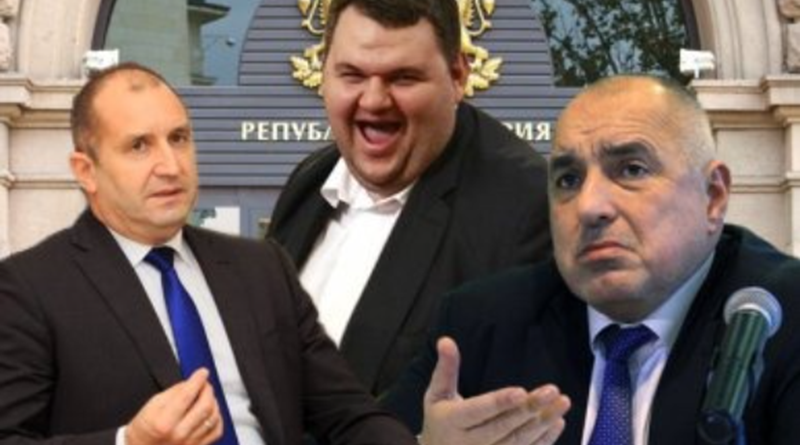The anti-campaign has produced anti-results – autocracy is knocking at Bulgaria’s door
The election results give little reason for anyone, including GERB, to rejoice despite its victory. The reason is simple: in order to stay in power, the “winners” had to suppress voter turnout, thereby reducing their legitimacy to a level unprecedented in Bulgaria’s democratic period. The only model of governance known to Mr Borissov and Mr Peevski, symbols of Bulgarian corruption and the captured state, is self-defeating. The victory of GERB and DPS will only deepen the crisis and hasten its collapse. But before that, Bulgarians face an autocracy whose only option is to govern through proxy cabinets and repression, as its legitimacy rests on a meagre 15 per cent of the electorate.
Mr Borissov will once again demonstrate his failure as a ‘man in charge’ – able to win elections but unable to translate that vote into meaningful governance with visible results that fulfil his electorate’s hopes for higher incomes, security and justice. Looming over all this is the restless energy of denial and the suppressed anger of the people who boycotted the political class and the elections. Mr Borissov is too familiar a face to betray anyone’s trust again, but Mr Peevsky, brimming with energy, will increasingly take the active role in their tandem. But he will inevitably become the focus of mass discontent and rejection. Then both will turn to and rely on the repressive apparatus to contain the inevitable anger on the streets. In the meantime, they have unleashed their bogeymen of anti-Europeanism and nationalism to frighten the West – the new “Velichie” (Greatness) and the old “Vazrajdane” (Revival) parties.
If you like this article, please support us with a donation to PayPal and to the direct account of the association Alternatives and Analyses IBAN BG58UBBS80021090022940. This will ensure that there will be further analyses
Despite the record low turnout, the performance and high percentages of the DPS and Delyan Peevski suggest a growing potential for control over GERB.
Mr Borissov has no one to blame but himself for the political trap he has found himself in. His campaign focused on discrediting his former governing partners from the PPDB, resulting in a divisive mudslinging campaign not seen for years. The bridges between GERB and the PPDB have been burnt and Mr Borissov is likely to continue his destructive drive, looking for any opportunity to destroy the PPDB.
Mr Borissov has once again demonstrated that his self-interest drives GERB’s agenda, highlighting his personal limitations on the party’s future. Public anger is simmering. Future outbursts are unlikely to be triggered by the opposition, the president or the media, but only by Mr Borissov himself, who is politically exhausted and unable to offer a viable modernisation upgrade for his party and the country. It is a matter of time for the business community to question the ability of GERB and DPS to secure and invest public and EU funds in the economy within the paradigm of the current corruption-driven distribution mechanisms.
The mimicry options – experts of national rescue cabinets – are not credible enough. The silent majority remains sceptical that professionalism and expertise can coexist within the self-serving framework of Mr Borissov. The concept of professionalism becomes a mockery within the limited range of what is feasible and acceptable for Mr Borissov and Mr Peevski.
However, both Mr Borissov and especially Mr Peevski have long been preparing for a non-PPDB cabinet – the so-called “turbo-Atlantic” – long on declarations, short on delivery. They have sent emissaries abroad to convey that neither Washington nor Brussels can rely on partners in Bulgaria other than GERB and DPS. They offer billions of dollars in deals to American companies and rely on lobbying to play down corruption in their government.
Mr Borissov and Mr Peevski hope to convince the US that they can govern with “tolerable” levels of corruption in exchange for significant arms and energy deals and verbal support for Atlanticism. The truth is that neither can or wants to deal with Russia’s growing influence, as they have a skin in the growing volumes of Gazprom’s natural gas transit through Bulgaria to the EU.
In the eyes of Mr Borissov and Mr Peevski’s supporters, this is a geopolitical masterclass in balancing between Russia and the US, in total disregard of Putin’s aggression in Ukraine.
The good news is that support for the Mr Borissov-Peevski model of government has reached the limits of its shelf life. Twenty-five years ago, its proponents secured a ruling majority that forced a succession of banking crises, impoverishment and mass emigration. To keep the majority of Bulgarians away from the ballot box this time, they have discredited the virtues of electoral democracy by maximising bought and controlled votes. Such a governing formula is unsustainable and sooner or later ends in autocracy. The bad news is that the Radev-Borissov-Peevski triad is fully capable of creating this formula of power in Bulgaria.
Ilian Vassilev




